Choosing the right lighting for your space is more than just picking bulbs; it’s about setting the mood, functionality, and even the style of your area. When torn between light bars and LED strips, the decision can be as tricky as choosing between a classic novel and a modern thriller; both have their allure, don’t they? These lighting options illuminate our world in vastly different ways, serving purposes from enhancing vehicle visibility to creating ambient indoor spaces.
The light bar, with its robust and intense beam, caters to those seeking durability and powerful illumination. On the flip side, LED strips offer unparalleled flexibility and a soft glow that can transform any indoor setting into a cozy haven or a vibrant party venue. But how do you decide which one fits your specific needs, especially when the market is flooded with options?
Navigating the sea of lighting solutions requires a clear comparison to guide your choice. Let’s dive right in!
Light Bars and LED Strips: An Overview
In the realm of modern lighting, two contenders stand out for their unique benefits and applications: light bars and LED strips. Light bars, with their rugged construction and powerful beam, are the go-to for those who brave the elements, whether it’s navigating through unlit country roads or ensuring visibility during rescue operations. Their sturdy design is not just for show; it’s a promise of reliability in the toughest conditions, making them indispensable for outdoor enthusiasts and professionals alike.
Imagine the difference a light bar can make on a pitch-black trail, turning night into day and ensuring safety with every mile covered. This is not just about illumination; it’s about security and peace of mind when you’re far from the city lights.
Conversely, LED strips represent the softer, more malleable side of lighting. These flexible ribbons of light are the dream of interior designers and DIY enthusiasts, allowing for an unprecedented level of creativity in lighting design. With the ability to bend, cut, and extend, LED strips fit seamlessly into any indoor space, adhering to the contours of furniture, walls, and ceilings, transforming the mundane into the magnificent.
From backlighting a television for a cinematic experience to softly illuminating a kitchen counter for a late-night snack without the harsh overhead lights, LED strips bring both functionality and ambiance to everyday life.
Analyzing Performance and Efficiency
Brightness Levels: Light Bar vs. LED Strip
In the world of illumination, not all light is created equal. Light bars, with their focused and intense light output, are the champions of clarity and visibility. Designed to conquer darkness, their powerful beams cut through fog, rain, and the dead of night, providing an unparalleled level of illumination that is essential in hazardous conditions or for outdoor adventures.
On the other side of the spectrum, LED strips offer a more subtle, dispersed light, perfect for creating atmospheres and highlighting spaces. The soft glow of an LED strip can transform a room, making it warmer, more welcoming, or even more functional. Whether it’s under-cabinet lighting that makes cooking a breeze or ambient lighting that sets the mood for a cozy evening, LED strips adjust to fit the needs of the moment without overwhelming the senses.
Energy Consumption and Efficiency
The efficiency of LED technology has revolutionized how we think about lighting, moving it from a mere necessity to a thoughtful choice for energy conservation. Both light bars and LED strips benefit from the advancements in LED efficiency, consuming a fraction of the energy used by traditional lighting solutions. However, LED strips often take the lead in energy conservation due to their customizable length and lower power needs, making them an ideal choice for eco-conscious consumers looking to reduce their energy footprint without sacrificing quality lighting.
In commercial settings, where lighting can account for a significant portion of energy use, switching to LED strips can result in considerable savings, not just in energy costs but also in maintenance and replacement due to their long life span. In residential applications, the adaptability and efficiency of LED strips mean that creating a warm, inviting home is no longer at odds with environmental responsibility and economic sensibility.
By understanding the distinctive advantages of light bars and LED strips in terms of brightness and energy efficiency, consumers can make informed decisions that align with their specific needs, preferences, and values, ensuring that their lighting choices illuminate their spaces in the most effective, efficient, and aesthetically pleasing way possible.
Durability and Longevity
In the ever-evolving world of lighting technology, the durability and longevity of your lighting choice can significantly impact not just the ambiance of your spaces but also the long-term value and maintenance needs. This is where the inherent qualities of light bars and LED strips come into sharp focus, each offering unique benefits that cater to different environmental demands and usage scenarios.
Weatherproof Qualities of Light Bars
When it comes to withstanding harsh outdoor conditions, light bars are engineered to be virtually indestructible. Encased in high-grade materials like anodized aluminum for the housing and toughened polycarbonate for the lenses, they’re designed to resist corrosion, endure high impacts, and repel water and dust with ease. This rugged construction ensures that whether you’re navigating through torrential rains, dust storms, or the rough terrain of off-road adventures, your light bar will continue to shine brightly, guiding your way without faltering.
The weatherproof nature of light bars makes them a preferred choice not just for automotive enthusiasts looking to enhance their off-road vehicles but also for various professional applications where reliability under adverse conditions is non-negotiable. From search and rescue operations that require dependable lighting solutions to construction and agricultural machinery that operates in less-than-ideal weather conditions, light bars stand as a beacon of durability and performance.
LED Strips: Lifespan and Durability Factors
While LED strips might seem delicate at first glance, they boast an impressive array of durability features that extend their lifespan and widen their range of applications. Many modern LED strips are designed with a waterproof silicone coating, making them resistant to moisture and dust, which is crucial for applications in kitchens, bathrooms, and outdoor areas protected from direct rain. Additionally, their flexibility does not come at the expense of durability; quality LED strips are encased in materials that protect against physical damage and degradation over time.
Beyond the physical durability, LED strips also excel in operational longevity. LEDs are known for their long life span, and with strips, this means thousands of hours of consistent, fade-free lighting. This enduring performance, coupled with their energy efficiency, translates into significant savings over time, reducing the need for frequent replacements and maintenance. For homeowners and businesses alike, this means the charm and functionality of LED strips continue to illuminate spaces long after their installation, making them a smart choice for both ambient lighting and task-specific applications like under-cabinet lighting, where durability and longevity are essential.
Versatility in Applications
The world of lighting solutions is as diverse as the needs it caters to, and when it comes to versatility, light bars, and LED strips stand out for their adaptability and wide range of applications. From enhancing safety and visibility in extreme conditions to creating ambiance and aesthetic appeal in personal and commercial spaces, these lighting options illuminate the vast potential of thoughtful lighting design.
Exploring Use Cases for Light Bars
Far beyond their common association with automotive adventures, light bars illuminate a multitude of possibilities across various sectors. Their robust construction and powerful illumination extend their utility to the marine world, where they light up the dark waters for night fishing enthusiasts, ensuring safety and enhancing the nocturnal fishing experience. On construction sites, where work doesn’t stop as the sun sets, light bars provide the necessary visibility for safe and efficient evening operations. Perhaps most critically, in emergency response scenarios, where every second counts, the intense light output of light bars can make a significant difference in visibility, aiding responders in navigating through challenging conditions to reach those in need.
Their versatility is not just in where they can be used but also in how they can be integrated into different environments. From mounting on the roof racks of adventure vehicles to being incorporated into the design of boats or emergency vehicles, light bars offer a reliable lighting solution that adapts to the needs of the situation, enhancing safety, visibility, and functionality.
Creative Possibilities with LED Strips
LED strips are the chameleons of the lighting world, blending seamlessly into a variety of settings to enhance the atmosphere and aesthetic of any space. Their flexibility and customizability open up a realm of creative possibilities, from providing the perfect ambient lighting that adds warmth and depth to living rooms to serving as dynamic backlights for TVs and computer monitors, elevating the entertainment experience with vibrant colors and soft glow.
In commercial settings, LED strips prove to be both practical and visually appealing. Bars, restaurants, and retail spaces utilize these versatile lights to create inviting environments that attract and delight customers. The ability to adjust colors, brightness, and even patterns allows businesses to tailor the ambiance to fit their brand or the mood they wish to convey, making LED strips a powerful tool for creating memorable customer experiences.
Under Cabinet Lighting: Making the Right Choice
One particular application where the choice between light bars and LED strips becomes evident is under-cabinet lighting, a feature that combines functionality with aesthetic appeal. Light bars, with their focused illumination, are perfect for kitchens where task lighting is essential. They cast a bright, uniform light across countertops, making food preparation safer and more enjoyable.
On the other hand, LED strips offer a softer, more diffuse glow that can enhance the ambiance of a kitchen or showcase the beauty of a backsplash. Their flexibility and ease of installation make them an ideal choice for adding depth and character to a space, blending lighting with interior design to create a warm and welcoming atmosphere.
The versatility of both light bars and LED strips showcases the importance of choosing the right lighting solution based on the specific needs and desired outcomes of a space. Whether it’s enhancing functionality, safety, or aesthetic appeal, the thoughtful integration of these lighting options can transform any area into a more inviting and effective environment.
Financial Considerations
Delving into the financial aspects of choosing between light bars and LED strips is crucial for both immediate budgeting and long-term investment considerations. While both options present unique advantages in terms of functionality and application, understanding their cost implications can help you make an informed decision that aligns with both your lighting needs and financial constraints.
Cost Analysis: Light Bar vs. LED Strip
At first glance, LED strips might seem like the more economical choice, particularly for those looking to enhance indoor spaces with flexible, ambient lighting. Their lower upfront cost is a significant advantage for residential or small-scale commercial projects, making them accessible for a wide range of budgets. Additionally, LED strips are champions of energy efficiency, which translates to lower electricity bills over time, an aspect especially appealing for those conscious of both their financial and environmental footprint.
In contrast, light bars represent a higher initial investment. This is partly due to their robust construction, advanced technology, and the high-intensity illumination they provide. Designed for more demanding applications, such as outdoor environments, vehicles, and industrial settings, light bars offer value through their unmatched durability and performance. Although the upfront cost is higher, the longevity and reliability of light bars can lead to cost savings over time, reducing the need for replacements and maintaining consistent performance in conditions where other lighting solutions might falter.
Maximizing Value for Your Investment
The true value of any investment in lighting goes beyond the initial purchase price, encompassing factors like installation costs, maintenance requirements, and operational efficiency. Whether opting for the versatile LED strip or the rugged light bar, ensuring a quality installation is pivotal. Poor installation can lead to increased maintenance costs, reduced efficiency, and even premature failure, negating any initial savings.
Regular maintenance and mindful usage are also key to extending the lifespan of your lighting solution and maximizing its value. For LED strips, this might involve cleaning and checking for any damage to the adhesive or strip itself, while for light bars, it could mean inspecting the mounts and housing for signs of wear or corrosion.
Furthermore, choosing products from reputable manufacturers with solid warranties can provide peace of mind and financial protection. Investing in quality products might mean a higher upfront cost, but the reliability, performance, and support can significantly reduce long-term expenses, making it a wise decision for those looking to maximize the value of their lighting solutions.
In the end, whether LED strips or light bars are the right choice for you will depend on your specific needs, preferences, and budget. By considering both the immediate and ongoing financial implications, you can select a lighting solution that not only meets your aesthetic and functional requirements but also represents a smart financial investment.
Navigating Your Lighting Needs
Identifying Your Specific Lighting Requirements
The journey to selecting the ideal lighting solution begins with a thorough assessment of your needs. This evaluation encompasses several key factors, including the intended application, the environment where the lighting will be deployed, and the aesthetic goals you aim to achieve. Light bars, known for their robust construction and powerful beam, are the quintessential choice for scenarios demanding durability and high-intensity illumination. They excel in outdoor environments, making them perfect for vehicles, exterior building lighting, and areas where visibility under harsh conditions is paramount.
On the other hand, LED strips boast an unparalleled level of flexibility and creativity, making them ideal for indoor settings. Their ability to bend, cut, and extend allows for custom lighting solutions that can adapt to any interior space. Whether you’re looking to create a cozy ambiance in your home, highlight architectural features, or provide focused task lighting, LED strips offer a versatile and aesthetically pleasing option.
When considering your lighting needs, also take into account factors such as energy efficiency, maintenance requirements, and the longevity of the lighting solution. By aligning your specific requirements with the strengths of each lighting option, you can make a choice that not only meets your immediate needs but also stands the test of time.
Comparison Summary: Pros and Cons
After analyzing your lighting needs, it’s helpful to summarize the pros and cons of light bars and LED strips to facilitate a more informed decision-making process. Light bars shine when it comes to delivering intense illumination and unmatched durability, making them suitable for exterior applications, challenging outdoor environments, and situations where robust lighting is necessary. However, this superior performance and durability come at a cost, both in terms of the initial investment and the potential complexity of installation.
Conversely, LED strips are celebrated for their affordability and incredible installation flexibility. They offer a cost-effective solution for enhancing indoor spaces with ambient, task, or accent lighting. The ability to customize the length and easily install them in a variety of settings allows for creative lighting designs that can dramatically transform any interior space. Despite these advantages, it’s important to note that LED strips may not provide the same level of brightness and durability as light bars, which could be a consideration for outdoor or high-demand applications.
By carefully weighing the pros and cons of each option in the context of your specific lighting needs, you can select a solution that not only illuminates your space effectively but also aligns with your aesthetic preferences, functional requirements, and budget constraints.
Conclusión
The choice between light bars and LED strips hinges on a nuanced understanding of each option’s strengths, limitations, and the specific requirements of the intended application. Light bars stand out for their rugged durability and potent illumination, making them ideal for outdoor and demanding environments. Meanwhile, LED strips offer unmatched versatility and customization, breathing life into indoor spaces with their subtle, ambient lighting. By meticulously evaluating your needs against the backdrop of these insights, you can illuminate your world with a solution that not only meets your practical and aesthetic needs but also stands as a testament to informed, thoughtful choice. Let this guide serve as your beacon, leading the way to a well-lit future that harmonizes functionality with beauty.
As we’ve navigated through the illuminating world of light bars and LED strips, it’s clear that each option shines in its unique way, catering to diverse needs and preferences. Amidst this landscape of lighting solutions, Unitop emerges as a beacon of excellence and innovation. As one of China’s premier manufacturers of Tiras de luces LED y Flexo de neón LED, Unitop brings unparalleled quality, cutting-edge technology, and a deep commitment to sustainability to the table. For those still pondering the perfect lighting choice or with specific requirements in mind, don’t hesitate to tender la mano to Unitop. Our team of experts stands ready to guide you, ensuring your lighting solution not only meets but exceeds expectations. Dive into the world of exceptional lighting with Unitop, where professionalism and expertise light the way to your ideal illumination solution.

Tom es ahora el Director de Ventas de Unitop (China) Co., Limited. Ha estado en el Iluminación LED industria desde 2005. Es experto en ventas y marketing, y en gestión de fábricas. Le gusta el culturismo, ¡y también es un fan loco de Apple! Es un tipo muy trabajador y le encanta aprender y probar cosas nuevas.
Correo electrónico: tom@unitopledstrip.com WhatsApp: +86-18680307140

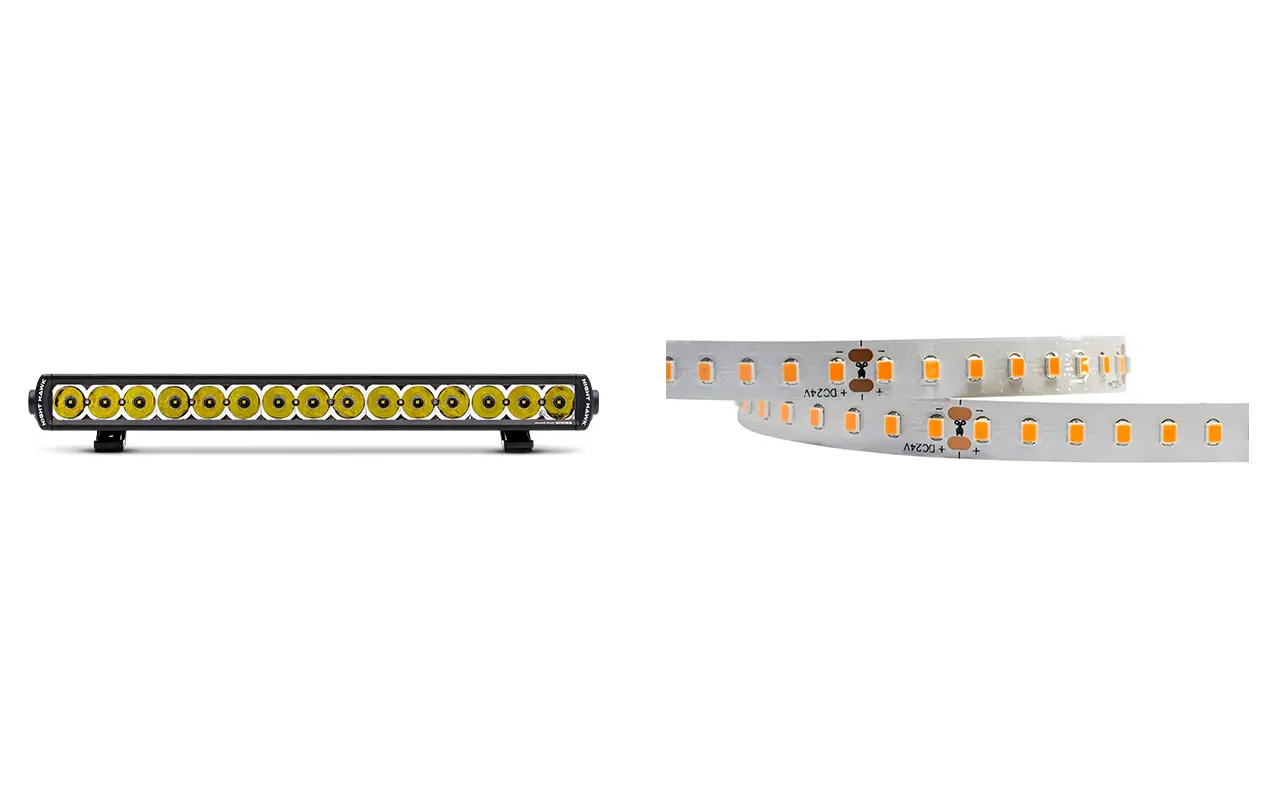
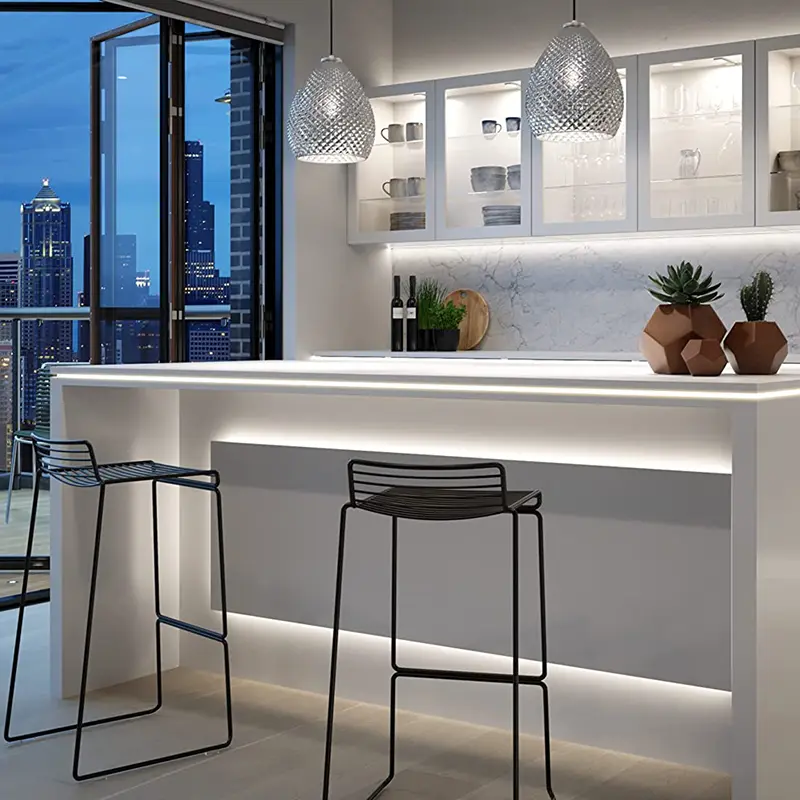
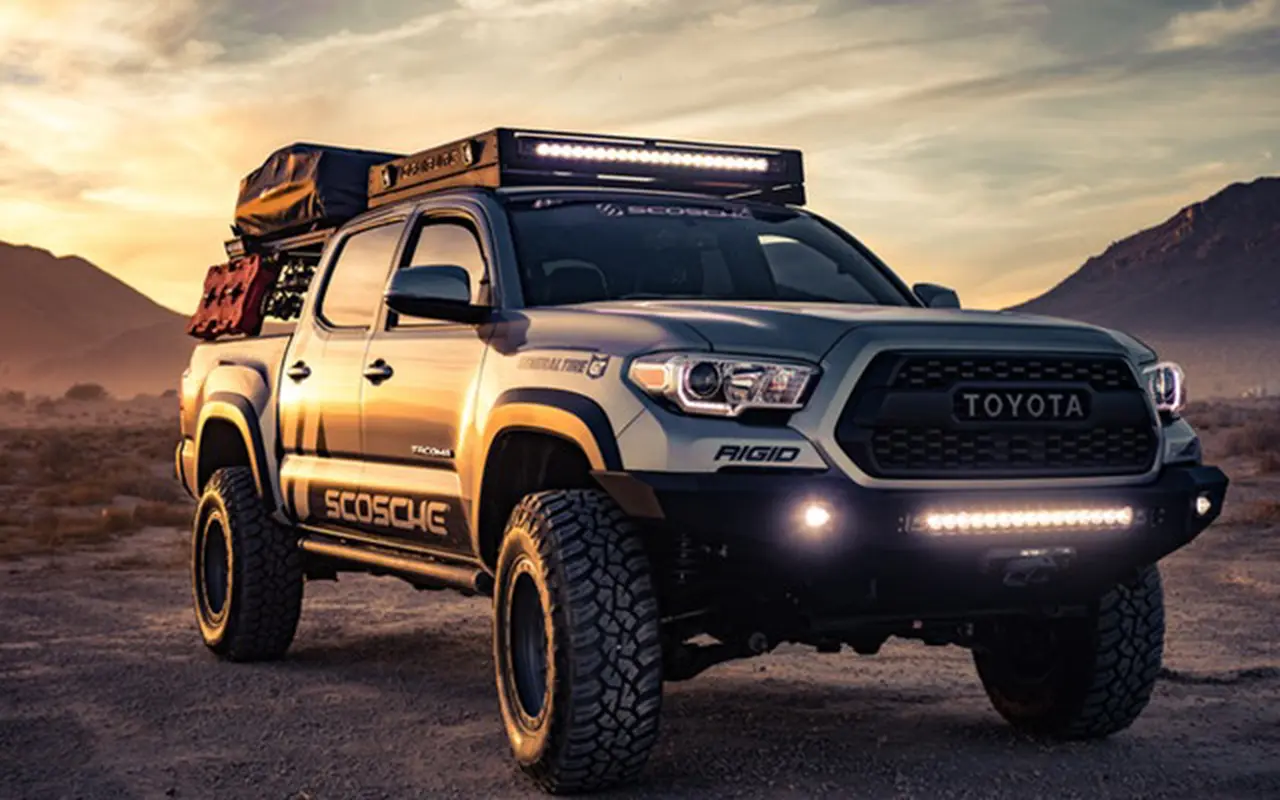
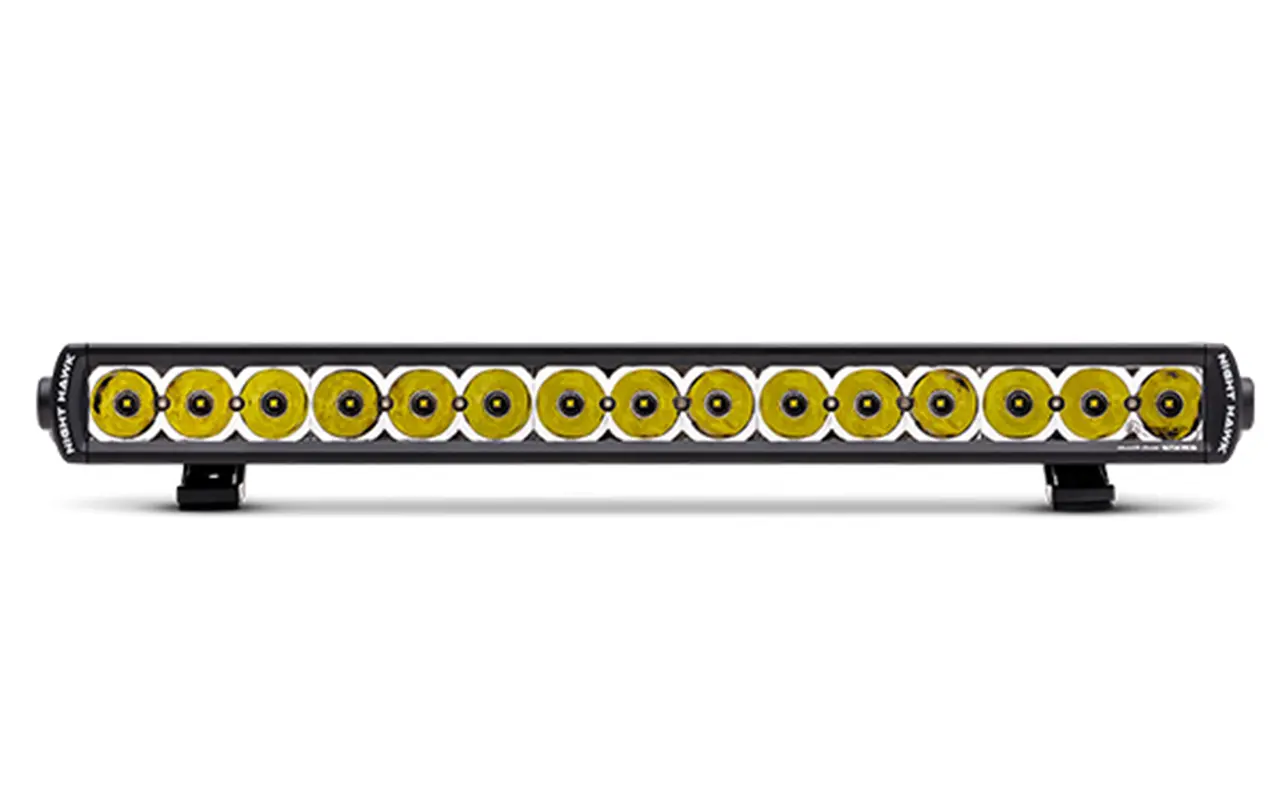


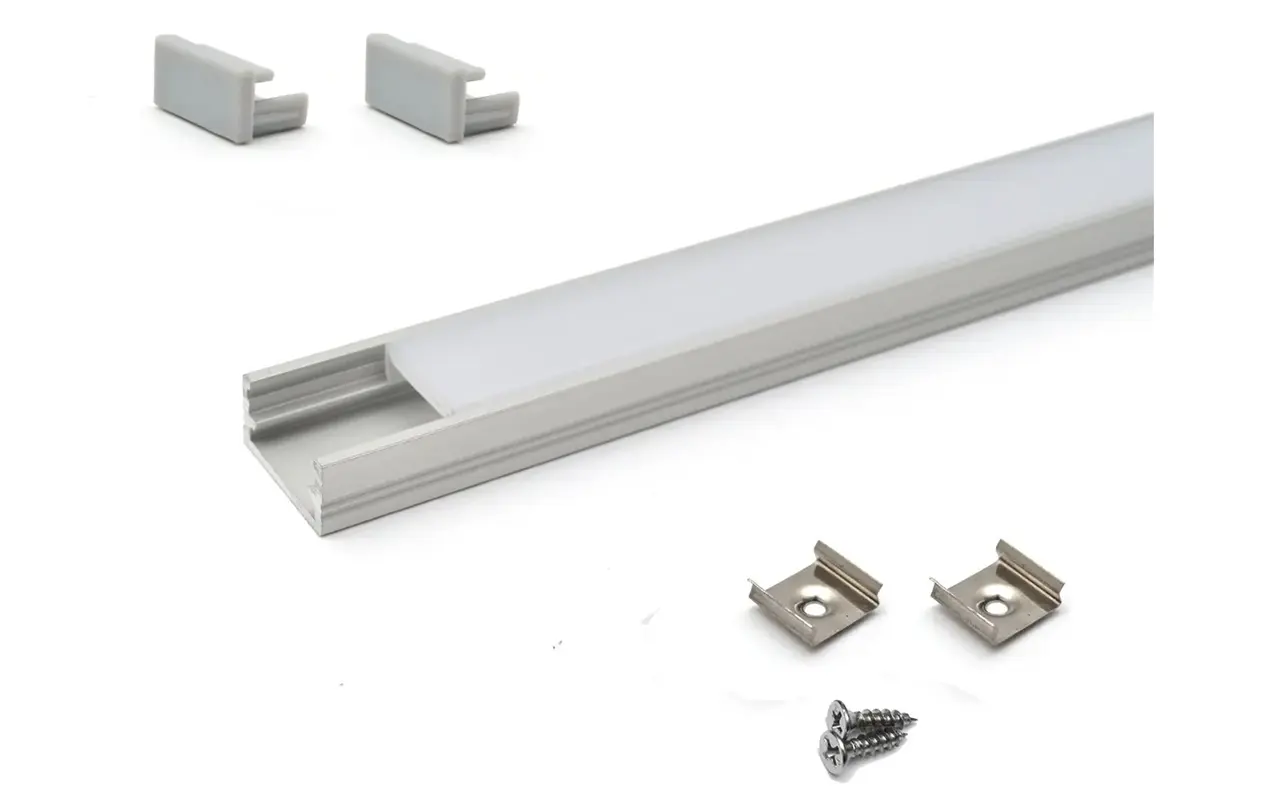
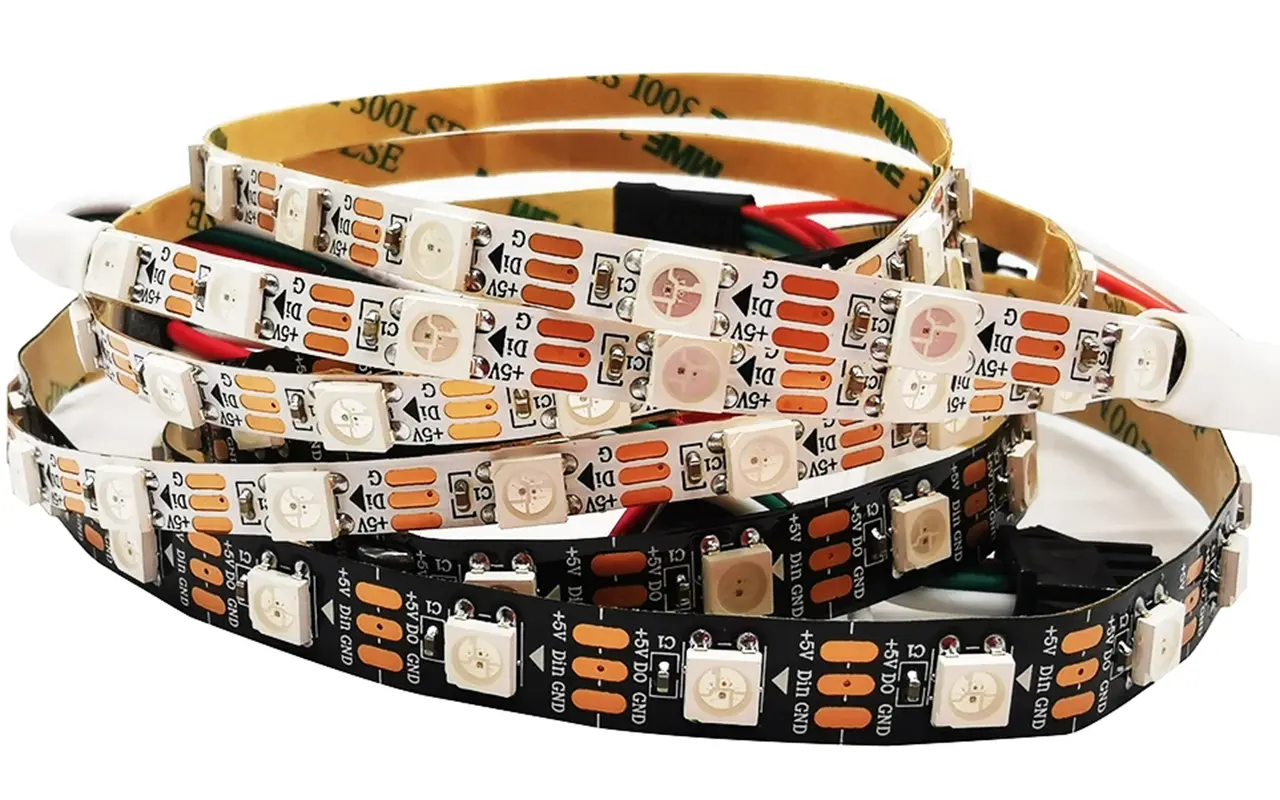
Dejar un comentario
¿Quieres unirte a la conversación?Siéntete libre de contribuir!